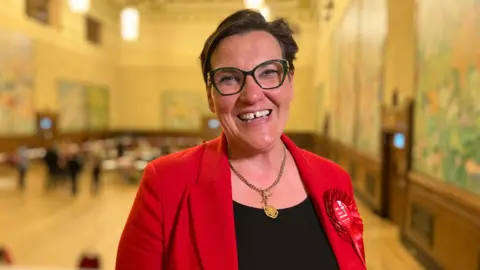Recent discussions surrounding abortion laws in England and Wales have intensified, especially following revelations from campaigners indicating that police have prosecuted over 100 women under existing abortion regulations in recent years. This situation has prompted Tonia Antoniazzi, a Labour Member of Parliament (MP) for Gower, to take action by proposing a significant legislative change: the decriminalization of abortion.
Historically, abortion in England and Wales has been a criminal act unless conducted under strict conditions outlined by a 164-year-old law. Currently, the law permits abortions only if they occur before 24 weeks of pregnancy and require the approval of two medical practitioners. Antoniazzi’s amendment to the Crime and Policing Bill seeks to decriminalize the procedure, contending that this should occur without altering the existing framework for abortion care provision.
Antoniazzi expressed deep concerns regarding the implications of the present legal framework, labeling the prosecution of vulnerable women as “unacceptable.” Her position reflects a broader discontent with how the current laws lead to judicial actions against women who may already be experiencing medical complications or personal crises.
Significantly, the movement for reform has garnered considerable parliamentary support, with nearly 60 MPs from various political affiliations—including Labour, the Conservative Party, the Liberal Democrats, the Green Party, and Plaid Cymru—endorsing Antoniazzi’s amendment. This bipartisan backing indicates a growing consensus that change is necessary. Notably, prior attempts to initiate discussions on similar amendments were thwarted last year due to the dissolution of Parliament for general elections.
Recent inquiries highlight an alarming trend: the increasing number of women undergoing police investigations for suspected illegal abortions. A BBC investigation revealed that some cases stemmed from investigations into natural miscarriage occurrences, prompting public outcry regarding the appropriateness of these legal actions. According to the National Police Chiefs’ Council, investigations should only proceed when there is credible evidence of wrongdoing associated with pregnancy loss.
The urgency of reform was brought further into focus by the case of Nicola Packer, a woman who was acquitted of accusations related to unlawfully administering abortion pills at home during the COVID-19 pandemic. Packer’s case exemplified the complexities surrounding abortion laws, particularly concerning the legal limits of medication use and the implications of a woman’s understanding of her pregnancy. In her trial, Packer mentioned a lack of awareness regarding the duration of her pregnancy, further complicating the discussion about legal provisions and women’s rights.
The Royal College of Obstetricians and Gynaecologists (RCOG) has echoed calls for reform, describing the current laws as “outdated and harmful.” The organization, along with various medical colleges, charities, and trade unions, has expressed its support for Antoniazzi’s legislative pursuit. In total, audits conducted by leading abortion service providers indicate that over 100 women have faced investigations for abortions in the past five years, with a reported six women having barred court appearances following these investigations.
Antoniazzi’s amendment, introduced in Parliament, is designed to be narrowly focused and does not intend to alter critical aspects of the abortion framework such as care provision, conscientious objection, or existing time limits. She firmly stated that no circumstantial justification warrants the prosecution of a woman facing a difficult pregnancy decision, reinforcing the proposed amendment’s purpose to protect women’s rights in England and Wales.
Additionally, discussions surrounding abortion laws are taking place in parallel across the UK. Although the legal provisions remain congruent in Scotland, there is a movement to review these regulations following advocacy calls for decriminalization. In Northern Ireland, a significant change already occurred in 2019 when abortion was fully decriminalized.
Chronologically, the historical context of abortion laws in the region indicates that the current frameworks stem from a period where abortions were entirely illegal until modified by the 1967 Abortion Act, which allowed for abortions to take place up until the 28th week of gestation, a limit later reduced to 24 weeks in 1990. Under the law, any termination post-24 weeks is permissible only under specific circumstances, such as when a woman’s life is at risk or if there are severe fetal abnormalities.
Recent statistics highlight the growing demand for abortions within England and Wales—2022 recorded a staggering 251,377 abortions, marking the highest annual total since the introduction of the Abortion Act. The fact that about 88% of these procedures took place before the 10-week mark emphasizes the pressing need for a legal system that is more reflective of current societal needs and medical practices.
Through this amendment and the backing it has received, Antoniazzi aims to establish a legal landscape that better supports women’s health and autonomy, emphasizing a necessary reexamination of how society deals with pregnancy and abortion.



